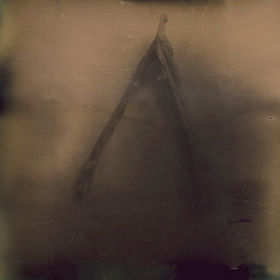
here is the NFO file from Indietorrents
———————————————————————
Badgerlore – We are All Hopeful Farmers, We are All Scared Rabbits
———————————————————————
Artist……………: Badgerlore
Album…………….: We are All Hopeful Farmers, We are All Scared Rabbits
Genre…………….: Psychedelia: Folk [Modern]
Source……………: NMR
Year……………..: 2007
Ripper……………: NMR
Codec…………….: FhG
Version…………..: MPEG 1 Layer III
Quality…………..: CBR 192, (avg. bitrate: 192kbps)
Channels………….: Stereo / 44100 hz
Tags……………..: , ID3 v2.2
Information……….:
Ripped by…………: NMR
Posted by…………: somebody on 5/27/2014
News Server……….: news.astraweb.com
News Group(s)……..: alt.binaries.sounds.mp3.m
Included………….: NFO
———————————————————————
Tracklisting
———————————————————————
1. Badgerlore – Furbearer [08:04]
2. Badgerlore – Goodnight, Sweet Rabbits [01:38]
3. Badgerlore – The Crops That You Tend [06:51]
4. Badgerlore – Whichever [01:22]
5. Badgerlore – We Are All Hopeful Farmers [08:08]
6. Badgerlore – Mountain Wine [02:55]
7. Badgerlore – Snowballs For Reuven [01:36]
8. Badgerlore – Grow Your Hair [08:29]
9. Badgerlore – Duet [04:17]
10. Badgerlore – When I Look At Your Face, I See Timothy [05:33]
Playing Time………: 48:57
Total Size………..: 76.24 MB
NFO generated on…..: 5/27/2014 8:27:45 AM
———————————————————————
Write anything you want… ;)
———————————————————————
:: Generated by Music NFO Builder v1.21a – www.nfobuilder.com ::
Album info
”
Awarding praise or assigning blame with a band like Badgerlore is difficult: First, there’s the group’s slow, unsteady evolution. Badgerlore started in 1998 as a duo between former Deerhoof member Rob Fisk and Six Organs center Ben Chasny, the pair occasionally rendezvousing in California to record the fragments that comprise 2003’s Of Things Too Sorrowful to Be Mindful Of, Of Things Too Beautiful to Possess. And, as if prescient of the tonal, torpid improvisations that have become Badgerlore’s hallmark, the band has continued to build itself by deliberately stirring its own pot. For their second LP, Songs for Owls, Charalambides’ Tom Carter and Yellow Swan Pete Swanson entered the mix. On We Are All Hopeful Farmers, We Are All Scared Rabbits, their third and most captivating work to date, Jewelled Antler Collective mainstay Glenn Donaldson falls into place alongside Grouper’s Liz Harris.
The induction of two new members here emphasizes the difficulty of assessing something like Badgerlore too carefully. After all, Badgerlore’s members are like the pseudopods of an amoeba, each doing his or her own thing without knowing where their actions will take them. By reaching out and shaping individual sounds with distinct but inherently related motions, the whole band stretches towards something unplanned and unknown. At We Are All Hopeful’s best, Carter, Chasny, Donaldson, Fisk, Harris and Swanson separately arrive at such a destination.
When that happens, Badgerlore can be mesmerizing. “Crops That You Tend”, for instance, twists and snarls a banjo through sheets of inseparable guitar noise before unexpectedly releasing into a resplendent chorus, the voices lifting in ghostly, graceful arches above the resonator: “Find the ones you love the most and hold them tight/ Find the ones you hate and hold them tight,” the hopeful farmers sing at a molasses creep, variations on the couplet cutting beneath one another. Or take the first seven minutes of opener “Furbearer”, in which yawning guitars and basses build in tiny increments as sporadic vocal washes drift above them. It’s an intentionally soporific lull– hazy and sullen and gradual– that finally coalesces into something bigger as if by accident: For 15 seconds, there’s the flutter of an overpowering drone, the sounds of eight minutes’ wandering funneled into one dark cloud. Then it’s gone.
These are risks Chasny and Fisk haven’t taken together before now, and they’re near-total payoffs. Previously, Badgerlore was sometimes crippled by a listlessness that still lingers in parts. Edits of jams reflected different slipstreams of consciousness that occasionally intersected through happenstance. We Are All Hopeful finds Badgerlore hearing ideas and pursuing them with forward motion. “Grow Your Hair”, the album’s late highlight, works counter to common Badgerlore knowledge, opening through a roar of clipped, unified guitars before falling off into near silence. It ultimately builds back into perhaps the most conventional structure in the band’s catalogue– coherent vocals, a regular guitar figure that kind of progresses, and instrumental dynamics that actually acknowledge structure.
Though it’s hard to say with certainty as he only contributed to one session for We Are, Donaldson– credited only with banjo here– seems to be a key catalyst and enabler, if only by influence. A founder of the Jewelled Antler Collective, he performs with acknowledgment of only his and his collaborators’ expectations, running his own CD-R label and taking his various projects either into studios or beside riverbanks, a rolling tape documenting both settings. As a member of Blithe Sons, he’s experimented with improvising around a core theme, but his work in the sprawling ensemble Thuja has acquainted him with pure improvisation, or building sounds and structures from ether, en masse. On We Are All Hopeful, Badgerlore— seem in the spirit of Donaldson, even if Carter and Fisk were responsible for the bulk of these finished recordings—.
It’s important to know that this is just a personal best. Early Badgerlore recordings made it seem like Fisk and Chasny would happily sit in a room forever, recording whatever came to mind with friends, one microphone and a lot of whiskey in tow. They’re still doing that, but, to their credit, they’ve taken more chances on We Are All Hopeful. Still, stacked against some of the accomplishments from Fluxus acolytes, several decades of international psychedelic music or– closer to now– the best from Matt Valentine’s New England camp, Badgerlore still has plenty of space and texture to fill. But it’s nice to know they’ve gotten this far.” – Pitchfork
